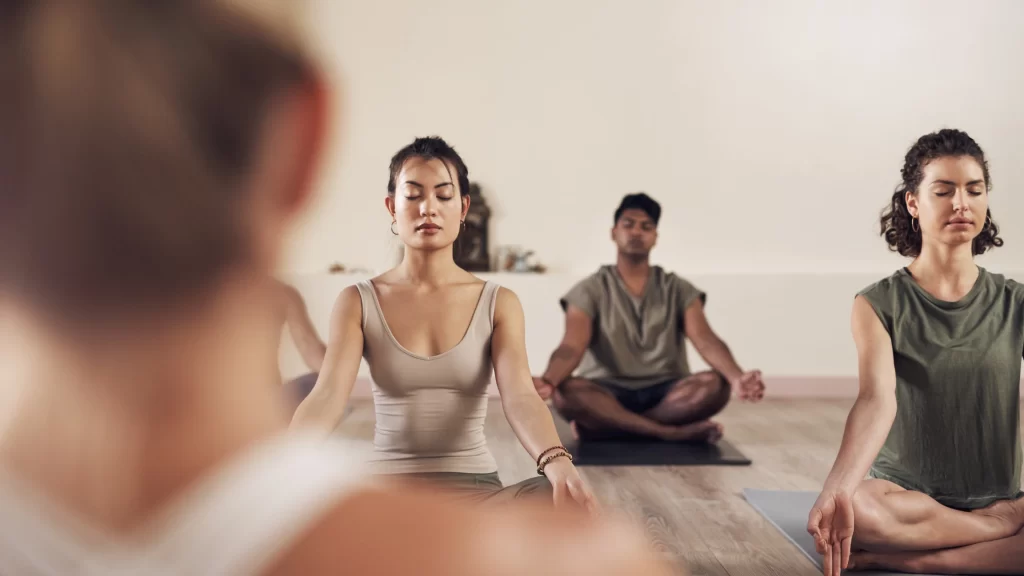Harnessing the Power of Meditation for Stress Relief and Mental Clarity
3 min read
Meditation offers a holistic solution for stress reduction and mental clarity. You can practice it either alone or with an instructor.
Meditation helps reduce information overload that contributes to stress and can teach skills for managing it more effectively. Meditation may even alleviate symptoms associated with certain medical conditions. As more you meditate, your mental resilience muscles grow stronger.
1. Breathing Meditation
Breathing meditation is an easy and effective way to reduce stress. You can do it any time and anywhere; for instance during work meetings, stressful phone calls, or before bed.
Breath meditation can also benefit health by lowering heart rate and blood pressure. Furthermore, it can improve sleep quality as well as control aches and pains.
For this technique, it’s best to find a peaceful place without distractions. Sit comfortably, close your eyes, and focus on breathing deeply; imagine inhaling more air into your lungs while your ribs expand; as an exhale, return everything back into its original position.
Noticing when your mind wanders is key to successful meditation; gently redirect it back towards breathing exercises. Body scanning meditation techniques may also prove helpful; focus on sensing warmth or relaxation in various parts of your body as you scan around with your gaze – this may make the practice simpler for some, though not necessary to reap its full benefits.
2. Visualization
Visualization meditation uses your imagination as a form of relaxation therapy, often in tandem with physical relaxation techniques like massage therapy. There are various techniques for visualization meditation available.
One way of visualizing is to imagine a safe space that makes you feel calm. This may be somewhere that has existed or something created within yourself; any type of environment works; make the experience as real as possible by adding details about sight, sound, scent and touch.
Think about an outcome or object you would like in your life and visualize it vividly as you practice the Law of Attraction – this can help you realize your goals faster!
Enhance visualization by injecting emotions. If you are visualizing an award ceremony at work, be as detailed as possible when visualizing this scene, including all sounds, smells and people around. Doing this will make the visualization even more powerful.
3. Mantra
Mantras are sacred sounds that invoke specific energies. A mantra may be repeated silently or out loud and used as part of meditation practice to focus the mind, reduce stress and promote emotional well-being; they can even serve as tools to manage mental health conditions like anxiety and depression.
Reciting this mantra can be an excellent way to remind yourself that while life may be out of your hands, your feelings about it are under control. Additionally, it can help identify any sources of anxiety in order to find clarity.
Mantras may seem similar to affirmations statements, but they serve very different functions. Affirmations tend to focus more on changing your mental state while mantras have more esoteric applications. While mantras can help boost mood temporarily, for lasting solutions it is wiser to consult a psychologist or licensed mental health provider for treatment options.
4. Relaxation Exercises
Relaxation exercises are therapeutic techniques used to unwind from chronic stress and relax both body and mind. Chronic stress can have adverse health impacts including high blood pressure, stomachaches, headaches and anxiety – these exercises such as progressive muscle relaxation can be led by either health professionals or self-help modalities.
Assume a relaxed position, close your eyes, and breathe slowly through your nose. Starting with any major muscle group (e.g. legs or feet), tighten those muscles as tightly as you can for 10 seconds before gradually relaxing them to find relief for relaxation in your body. Repeat this with all major muscle groups of your body.
Make these techniques part of your everyday routine and make time to practice them regularly; mastery may take some time, so try doing it at the same time each day so it can become part of a habit. Breathing exercises, visualization techniques or guided imagery can all be invaluable tools for managing stress.







